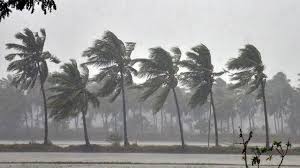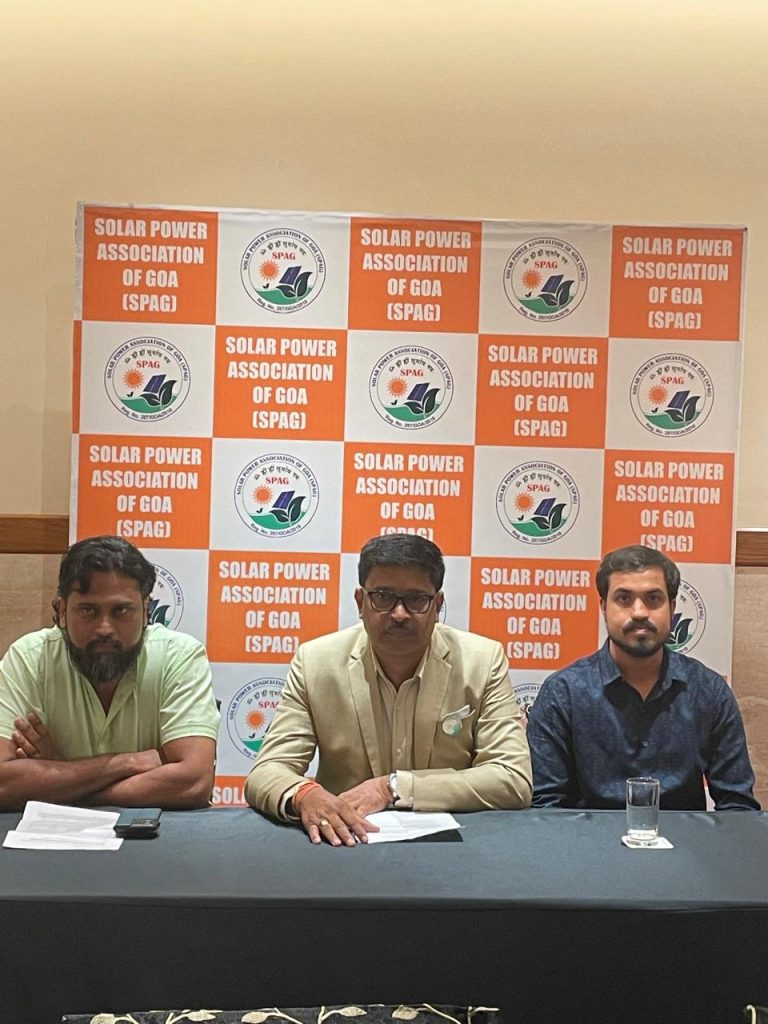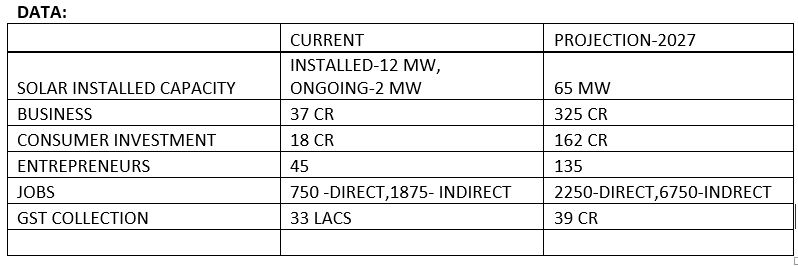Goa is abuzz with excitement as vintage bike and car owners, users, collectors and fans are decking […]

BIHAR POLL REVISION
July 26- Aug 01, 2025, WEEKEND UPDATES July 25, 2025THE Election Commission claims that over 55 lakh voters in Bihar were not present at their notified place of residence during the rapid revision of the electoral rolls. It is possible that the missing voters are migrants who are living in other states in the country. There has been very little development in Bihar compared to most other states in the country.
Historically, the states in the north have been called “bimaru” (sick) states. The EC has made an effort to reach out to Bihari’s registered as voters in Bihar but are now living in other parts of the country to earn out of compulsion a more profitable livelihood. Many of the migrants make up unskilled labour force and do not have resources to make it back to Bihar only to cast their vote during an election.
This is also true of Goa where a large number of Goans are working in the Gulf countries and cannot return to cast their vote in Goa. Perhaps the Election Commission can be dynamic enough to make arrangements for voters out of state to cast their votes through postal ballet as it happens in some advance3d countries. This provision is already available for the armed forces of India.
BAN ON PLASTIC WASTE

AT present there is no ban on single use plastic bags in Goa. In fact all commercial establishments, including Swiggy and Zomato outlets, home deliver in single-use plastic bags. Chief Minister Pramod Sawant claimed in the Legislative Assembly that the government would distribute one lakh cloth bags to counter the use of plastic shopping bags. This would not be adequate as the requirement of cloth bags would be a hundreds of time more if they were to replace plastic bags.
The government should made it compulsory for shoppers to carry their own cloth or plastic bags. Our better half carries her own stainless steel “tiffin”or containers when she buys home food from eateries or restaurants down town Panjim. There should be a strict ban on food delivery apps and Amazon and other commercial platforms from using single-use plastic material. The CM confessed that the State government does have the authority to impose a ban on the manufacture of plastic bags.
LONGER WORK DAYS

THE State government has introduced an amendment to the Factories Act 1948 to increase daily working hours 10am to from the current nine hours. The government has also permitted more overtime work hours for employees. It may be recalled that the former chairman of INFOSYS, Narayan Murthy, had complained that Indian workers are lazy and now not willing to work for longer hours.
In fact, Narayan Murthy wanted them to work on Sunday also. Long working hours do not guarantee increase in productivity. In fact, in European countries with very high productivity like Sweden, the maximum number of working hours including overtime cannot exceed 48 hours a week. Normal working hours are limited to 40 hours a week. Employers are required to provide at least 14 hours of rest every day and a weekly day off.
FOLLOW BIHAR MODEL

IRONICALLY, Chief Minister Dr Pramod Sawant has asked students to follow the Bihar model. Bihar has the largest number of IAS officers. Pramod Sawant has revealed, “Students in Bihar prepare for UPSC exam right from the eighth standard. If Goan students can start preparing early, they will also be able to crack the UPSC and other competitive exams.” At present, Goan students are not even able to clear exams conducted by the Goa Public Service Commission. The CM had earlier claimed that a few teachers in Goa are not aware of the entrance exam for IIT and the medical colleges and do not motivate Goan students.
VERY WET WEEKEND

IF you believe in the predictions of the Meteorological Department, Goa is expected to have a very wet weekend. A red alert was issued for July 24, and a yellow alert sounded for Saturday and Sunday. To add to the wet weather the wind speed was 40-50km, even going up to 60km per hour. The cold winds have aggravated the wet climate. The minimum temperatures are falling sharply to as low as 26.4 degree Centigrade.
DANGEROUS PET DOGS

NOT stray dogs but even pet dogs seem to be posing a major threat in Goa. The Vasco da Gama police on Wednesday, July 23 registered an offense against a pet owner for not taking safety measures in caring for his dog. A pet dog belonging to Deepak Kumar, a resident of Bogmalo, reportedly came out of the gate of the resort and bit the right leg of Gokuldas Naik who was walking down the main road.
The greatest threat is not from pet dogs but from stray dogs. There have been a number of cases of stray dogs on the beaches attacking both domestic and foreign tourists. Incidentally, the Bombay HC made an interesting observation. The honourable judges requested dog lovers to feed stray dogs at their own houses and not up and down the streets and mainstream highway roads.
Littlemore Innovation Labs Pte Ltd 809 French Road 05-152 Kitchener Complex, Singapore
GOA LEADS PAPERLESS EXAM REVOLUTION
A HISTORIC milestone happened in Goa’s education system on July 25, 2025. It was achieved at the Dr KB Hedgewar Higher Secondary School, in collaboration with LittleMore Innovation Labs, Singapore. India’s first fully paperless digital school exams using the LMExams platform was successfully launched — it’s a secure, exam-only digital device purpose-built for high-stakes assessments.
The first digital exam week was a success story from July 21 to 26, students of Grade 11 and 12 at Hedgewar School wrote their final exams without using a single sheet of paper, instead using DigiTaal devices powered by LMExams’ secure offline platform. A total of 347 students appeared for the exams in two batches, across a fully digitized, monitored setup. This pioneering initiative marks a transformative shift in how school exams will now be conducted – this is a national precedent as exemplified by Hedgewar School in Goa.
What makes LMExams different? Developed by LittleMore Innovation Labs of Singapore, the LMExams platform includes:
• Tamper-proof DigiTaal devices (no internet, no apps, no distractions)
• Encrypted digital question delivery
• Handwritten digital answers, auto-synced and stored
• Full offline exam mode with audit trails
• Online evaluation with assistive marking tools, “It is not a tablet. It is not a laptop. It is an exam-only device designed for secure, scalable assessments.”
Climate-Smart Exams means the single pilot will save 30,000 sheets of paper — equivalent to conserving three to four fully grown trees, and avoiding carbon, water and energy costs of printing and logistics. If scaled across Goa, over five million sheets could be saved annually — making the state’s education system greener, lighter and globally responsible. Through a partnership with C2Zero, Sydney, LMExams also locks away carbon rights, ensuring that Goa’s action translates into real-world carbon savings on the global stage. Littlemore Innovation Labs Pte Ltd, 809 French Road, 05-152 Kitchener Complex, Singapore Visionary Leadership is now at Hedgewar School
Needless to say at the forefront of this innovation is Dr KB Hedgewar Higher Secondary School, Bambolim — a respected institution known for academic excellence and social responsibility. Guiding this transformation are Subhash Desai, Manager; Dr Deepak Amonkar, Principal, Higher Secondary; Vilas Satarkar, Headmaster; the High School chief guest’s remarks: “This initiative is a perfect confluence of educational reform and environmental responsibility. It reflects Goa’s commitment to leading the nation in adopting thoughtful, scalable innovations that benefit both our students and our planet.”
Govind Parvatkar, chairperson, Goa Education Development Corporation and principal Deepak Amonkar have praised this step towards rethinking how we assess, how we conserve, and how we prepare students for a changing world. It’s a collective vision setting a benchmark for schools across India. A model for the nation is Goa’s NEP-aligned education leadership, manageable scale, and future-forward mindset. This is the perfect launch pad for India’s digital exam transformation.
With this pilot now validated, LMExams is ready to support schools, exam boards, and governments across India in transitioning to climate-smart, tech-secure assessments — without compromising on exam integrity or incurring heavy infrastructure costs. LMExams is India’s first exam-only digital platform.
SUCCESS OF GOA’S SOLAR POLICY VISION 2027-MISSION 2027

THE good news is the Goa government is offering a 50% subsidy to householders who want to cut their electricity bills and go solar. According to past president of the Solar Power Association of Goa, speaking at a solar awareness press conference on July 23, 2025 “As of today Goa has achieved 12 MW of rooftop solar capacity, benefitting around 1,200 consumers, with an additional 2MW currently under installation.”
What is interesting is that it is individual house owners who’re benefitting from the subsidy while there’s a poor response from housing societies on behalf of their flat owners and/tenants who are now paying steep electricity bills at the end of the month for power consumption, and that too if there are no power outages!
The perception so far is that in the long run solar energy is a boon for everyone to implement. Reportedly, the growth so far is impressive and largely driven by the State Solar Subsidy Scheme of 50% subsidy. It was introduced under the leadership of Chief Minister Dr Pramod Sawant who would like to see a Goa 100 % eco-friendly in the realm of energy consumption (seeing how Goa depends greatly on the power grids of neighboring states to this day).
The world over solar and wind driven technologies are perceived as the pet schemes to switch over to for faster progress, and also to be less of a burden on the earth’s resources which are polluting in the long run and also running out. The 50% subsidy solar scheme was announced on February 15, 2024 targeting 1 crore households across India with a budget of Rs75,000 crore.
In the last 14-15 months Goa has achieved 7.0 MW of solar rooftop installations. This initiative has seen so far consumers collectively receiving Rs5.343 crore in PM-Surya Ghar Yojana (PMSGY). Goa has performed exceptionally well, setting unmatched standards vis-à-vis entrepreneurship, job creation and ensuring a way for money flow in terms of business and GST collection.
In the residential sector, the subsidy disbursed by the government till date:
State Government-13.5 Cr Central Government-5.37 Cr
The big question is, Does the State government benefit by giving the existing subsidy? Check the facts and then we may conclude:
With these facts and figures the conclusion is the State government definitely benefits by giving the existing subsidy and the solar industry has contributed in an overall development in a huge way.
SPAG congratulates the Goa’s “pro-sumers” (producer-consumer) on being proud solar plant owners and appeals for more people to invest in solar. Interestingly, the Goa State Policy Subsidy commenced way back in 2019 with its consumer incentive of 50% for rooftops and 20% to the LT commercial; this is likely to be available till 2027. The solar industry is geared up to achieve in total residential sector 25-30MW by end of this March 2026 with the support of State 50% subsidy up to 10KW and 10% up to 30KW.

All the vendors concerned are trying to meet the CM’s vision of 21,000 houses with solar roof top by 2027. As on date 1,300 consumers have adopted the solar rooftop scheme out of 5,97,000 residential consumers. Approximately 80,000 consumers are consuming more than 300 units per month, only 1.6% of consumers have adopted solar rooftop scheme.
The story is that net zero carbon status can be achieved if the subsidy is maintained till 2030. The success of the scheme so far is thanks to the hard work of the Electricity Department, GEDA, and Chief Minister Dr Pramod Sawant whose ambitious target is to achieve 65MW of residential rooftop solar capacity by 2027. We may look forward to a greener, energy-independent Goa in the near future!














